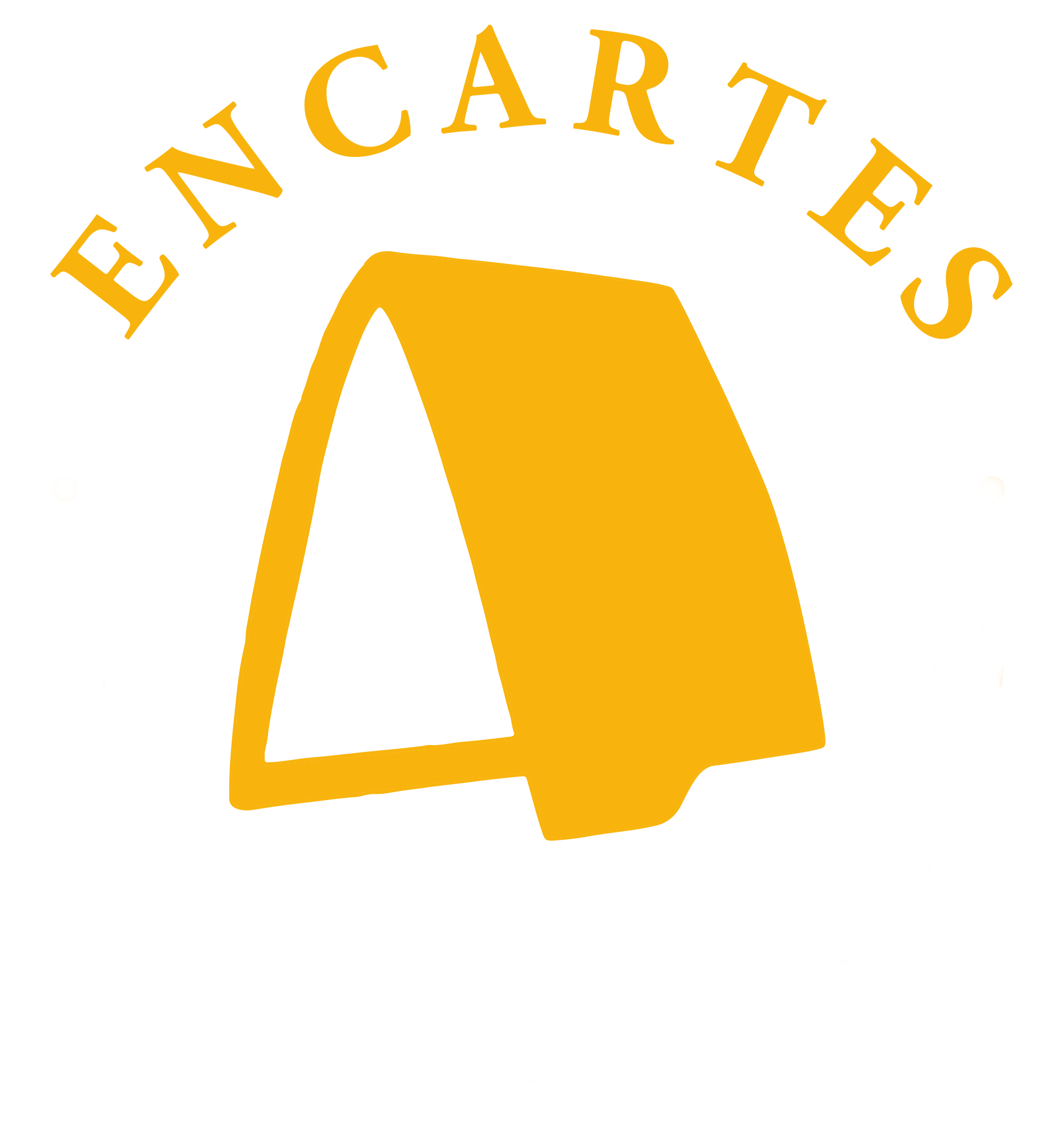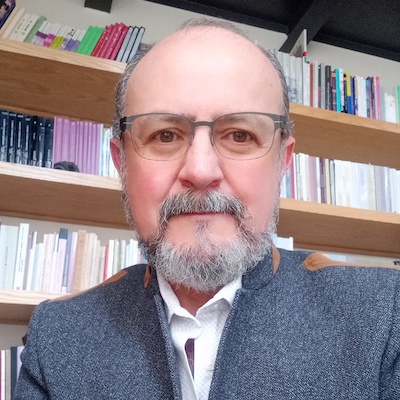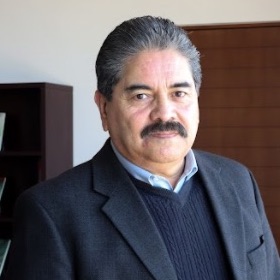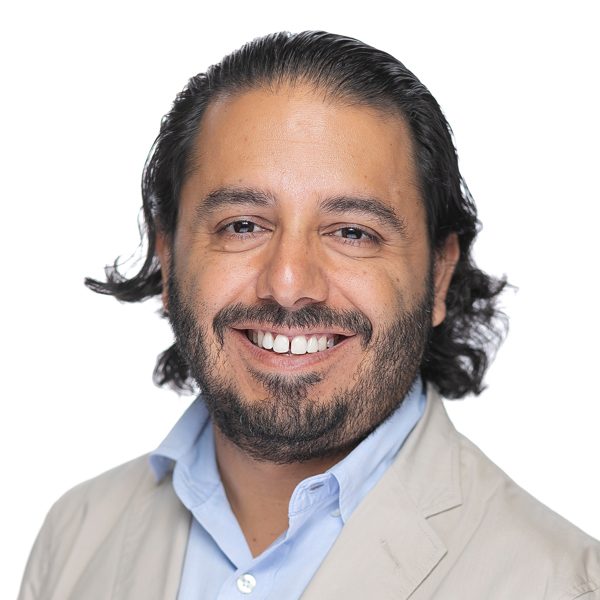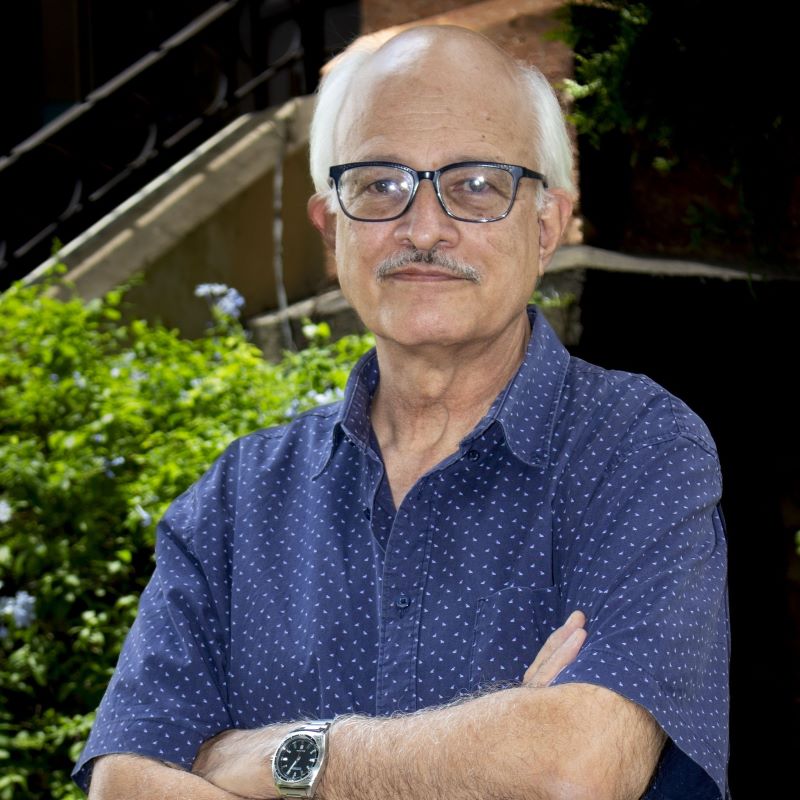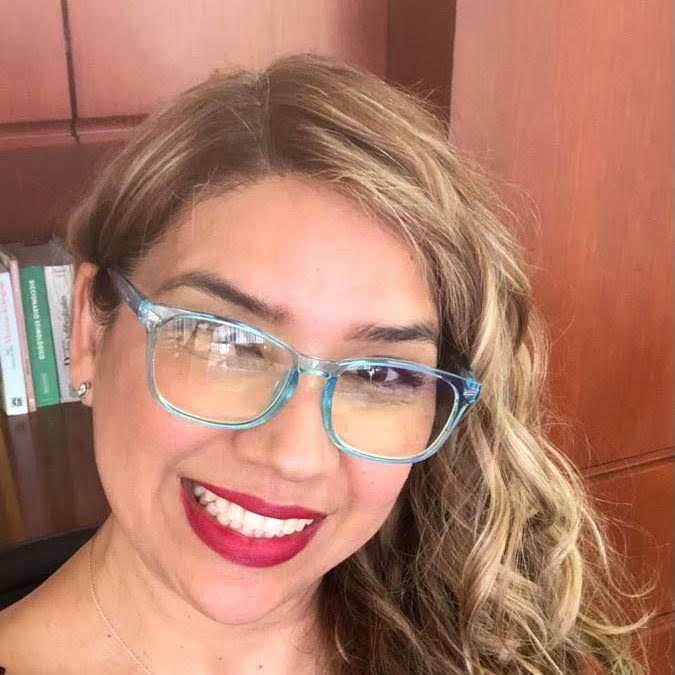The Editorial Comitee provides advice and support in planning the thematic sections of the magazine.
Sociologist and Historian. He has focused his attention on the post-revolutionary process in Mexico, the colonial and contemporary history of the Caribbean, and the influence of new technologies on contemporary society. He was founding director of the Revista Mexicana del Caribe, 1994-2004, edited by the University of Quintana Roo, CIESAS and ECOSUR. Among his recent publications are: Quintana Roo. Historical vitality and contemporary unfolding, Millennium Library, 2016, and Quintana Roo. 200 answers about the past and present of the entity, Millennium Library, 2020 [in press].
He is a historian and a graduate of the Faculty of Philosophy and Letters of the University of unam. His interest in the publishing field arose after having promoted a series of scientific and outreach publications as coordinator of the Institute of Legislative Research of the Congress of the State of San Luis Potosi (2009 - 2012). Subsequently, when he was appointed director of the "Revista de El Colegio de San Luis", specializing in Social Sciences and Humanities, and president of the Editorial Board of the colsan[Iversalitas] (2013 - 2017), carried out the transition of the journal from a printed format to a digital one with open access; and the incorporations to national and international indexes were achieved. Recently, he has promoted the publication of editorial works of El Colegio de San Luis in digital format, as well as their international distribution in open access.
He holds a master's degree and a doctorate in political science from the unam and the Complutense University of Madrid. He is a member of the sni, level ii. His main lines of research are: extraterritorial suffrage, democracy, regional political processes and local elections in Mexico. He received the National Public Administration Award (1992) and worked as a non-resident visiting professor at the Center for U.S.-Mexico Studies at the University of California, San Diego (2020-2021). He is currently participating in the research program "El voto de los mexicanos en el extranjero 2006-2022. Participation, political preferences and typology of remote voting". His publications include The extraterritorial suffrage of Mexicans. Participation, political preferences and typology of remote voting. (2021) and "The Battle for the Governorship of Baja California" (2020, Mexican Journal of Electoral Studies).
D. degrees from ITESO, the University of Guadalajara and Temple University, respectively. He has been a university professor in these three houses of study. He is currently director of the Department of Sociocultural Studies at ITESO and member of the National System of Researchers (Level 1). Since 2020 he is general coordinator of ETIUS: Observatorio de Comunicación y Cultura. He has published in the following journals International Journal of Communication, Media, War & Conflict, Tripods, Communication and Society, Global Media Journal Mexico and Latin American Research Review. Her research project is focused on the theoretical and empirical study of public and political communication. In particular, she seeks to critically understand the creation and development of political communication systems in various fields and scenarios, such as electoral processes, socio-environmental crises, and media institutions.
PhD in Communication from the Catholic University of Louvain, Belgium. She is currently a professor-researcher in the Division of State and Society Studies at the University of Guadalajara. The central research topics are: Hegemonic discourses, public policies and cultural diversity. Analysis of oral, written, photographic and image speeches. Featured Posts: Between voices. Education snippets (2007); The genie in the bottle (1984); Looks interviews (2002); "Books for the Wixáritari: A history of integration, exclusion and emancipation" in Communication and society (2013); Readers and formation of citizenships in Mexico: "Observations on the National Program Reading Rooms of CONACULTA" in Border studies (2013); "Drawing gods in two communicative contexts" in Communication and society (2009); "Indigenous photography in the rituals of social interaction" in Communication and society (2006).
Franco-Mexican (Paris, 1972). She is an economist and anthropologist, professor-researcher at CIESAS-Noreste since 2003. Her main line of research focuses on the intersection between migration, gender and ethnicity. Since 2004 he has headed several research projects on indigenous people in the Monterrey metropolitan area and domestic workers in Latin America, with the support of the National Council for Science and Technology and at the request of the National Commission for the Development of Indigenous Peoples. In 2011 and 2012, he participated in the development of a legal framework on indigenous rights in Nuevo León. Since 2015, she has been investigating the relationship between public security, human rights and forced displacement. He is a member of the National System of Researchers (Level 2) and of the Mexican Academy of Sciences (Humanities Section).
D. studies at the Escuela Nacional de Antropología e Historia, Mexico, and a Ph.D. at the University of Manchester, England, specializing in the area of visual anthropology at the Granada Centre for Visual Anthropology. He worked for several years as a visiting professor in the postgraduate program in Visual Anthropology at Goldsmiths College, University of London. He has published on visual anthropology, political violence and community reconstruction processes and access to justice in the Mayan region. He has also produced several videos in collaboration with indigenous authorities and videographers in Guatemala, on historical memory and Mayan legal practices in communities in the region. He is currently a full time professor in the Department of Anthropology at the Universidad Autónoma del Estado de Morelos, Mexico.
Doctor in Sociology from the Complutense University of Madrid. She is a professor-researcher at San Diego State University and El Colegio de la Frontera Norte. His main lines of research include cultural processes on the northern border of Mexico, the visual arts, the media, identities and the study of gender. His most recent books are: Álvaro Huerta, Norma Iglesias Prieto and Donatha Brown (eds.), Contemporary Issues for People of Color Surviving and Thriving in the US Today. Volume 5: Immigration and Migration (2016, in press); Visual Arts Emergencies in Tijuana. Volume I. Global contexts and creativity (2008). Some of the most recent articles published in academic journals: The US-Mexico Border and Children's Social Imaginary: An Analysis of Wacha el Border and Beyond the Border ”, in The American Studies Journal (Heidelberg, 2012); “Transfrontera: The US-Mexican Border as Transnational Spacethe-US-Mexico-border-and-childrens-social-imaginary /; "Transcending Limits: The US-Mexico Border in Film." FIAR: Forum for Inter-American Research (Bielefeld, 2010). Some of his most recent book chapters: "Cross-border and creative processes" in José Manuel Valenzuela (ed.), Cross-borders: The borders of the world and cultural processes (2014); "Coming and Going: Transborder Visual Art in Tijuana", Rosana Blanco-Cano and Rita E. Urquijo-Ruiz (eds.), In Global Mexican Cultural Productions. (2011); "The Other Side of the Line", M. Dear, J. Ketchum, S. Luria, and D. Richardson (eds.), In GeoHumanities: Art, History and Text at the Edge of Place (2011); "Transborderisms: Practices that Tear Down Walls", Ronald Real, in Border Wall as Architecture (2016, in press); Dario Seiguer and Norma Iglesias Prieto, “Commuter Workers, Transborder Workers, or Transmigrants in the US-Mexican Border”, in Contemporary Issues for People of Color: Surviving and Thriving in the US Today (Vol. 5 Immigration and Migration) (In press).
Doctor in Anthropology from the Universidad Iberoamericana. The central research topics are: Epigraphy and analysis of ethnohistoric sources, ethnohistory, historical, political and cultural processes. His publications include: The Map of Coatlichan in Mexican Archeology (2013); A historical record in the multicolored images of the Mexican fund of the National Library of France in Codices and writings of Ancient Mexico (2012); The Quinatzin map. Justice and human rights in ancient Mexico (2004); The Quinatzin map. From brave warriors to wise and powerful rulers (2001); General history of the State of Mexico, pre-Hispanic era, S. XVI (1999).
Doctor from UNAM (1992). He is a Research Professor at CIESAS and at the Faculty of Philosophy, Letters of the UNAM and a subject professor at the College of History and the Division of Postgraduate Studies in History. He has a specialty in political processes and culture during the Mexican 19th and 20th centuries. It also deals with the history of drugs in Mexico, social discourse and intolerance, between l850-l940, as well as some aspects of the history of photography and cinema in Mexico and in Latin America. He has published 24 books and more than one hundred scientific articles that deal, among other topics, on the history of popular and peasant movements during the Mexican Revolution, the presence of German and Spanish interests in Mexico and their links with conservative groups, their relationships international and internal organization. For more than thirty years he has studied various aspects of popular culture, daily life and nationalism throughout the 19th and 20th centuries in both Mexico and Latin America. Main or most recent publications: Hispanismo and Falange, the imperial dreams of the Spanish right and Mexico (l992), Stamps of Mexican Popular Nationalism; Essays on popular culture and nationalism (1st ed. 1994-2nd ed. 2004), Historians of Mexico in the 20th century (1995); Habits, norms and scandal; Press, crime and drugs during the late Porfiriato (1997); Yerba, gum and powder. Drugs, environments and police in Mexico 1900-1940. (1999); Avatars of cultural nationalism (2000, García Cubas Award from the INAH, 2001); Mexicans between two centuries (2003); Popular expressions and cultural stereotypes in Mexico, XIX and XX centuries. Ten Essays (2007); Everyday life, Imaginaries and Contexts. Essays of history and culture in Mexico 1850-1950 (2009); End of centuries End of cycles? (2013, coordinated in collaboration with Leticia Reina); Looks, hopes and contradictions. Mexico and Spain 1898-1948 (2013); Contemporary Mexico 1808-2014, Volume 4. Culture (2015); The fandango and its cultivators: essays and interviews (2015); Y Tolerance and prohibition. Approaches to the social and cultural history of drugs in Mexico 1840-1940 (2016).
Professor emeritus researcher at El Colegio de la Frontera Norte and emeritus researcher of the National System of Researchers (sni) of Conahcyt. He holds a PhD in Social Sciences with a major in Sociology from El Colegio de México and a Ph. honoris causa by the Autonomous University of Baja California. His works have been pioneering and of great importance for the understanding of the socio-cultural processes that define the U.S.-Mexico border, Latin American cultural studies, popular cultures and youth movements in Latin America and the United States. His most recent books are: The dance of the extinct. Juvenicide, violence and hitman powers in Latin America.. Mexico: udg/colef, 2022; y Cuchumá. The sacred mountain of Tecate. Mexico: Gedisa/colef, 2022. She is currently on a sabbatical research stay at the Universidad Autónoma de Baja California, Instituto de Investigaciones Culturales-Museo.
He has a doctorate in Sociology from the Complutense University of Madrid. Professor-researcher attached to the Department of Public Administration Studies (DEAP) of El Colegio de la Frontera Norte and member of the SNI (level III). He was coordinator of the Multilevel Policies for the Return and Reinsertion of Mexican Migrants and Their Families (2018-2019) project, carried out by El Colef under the auspices of the National Human Rights Commission (CNDH). His publications include the books Puentes that unite and walls that separate. Bordering, securitization and processes of change on the borders of Mexico and Brazil (coordinator; in press); Changing creed in contexts of mobility: the interconnections between migration and religious change, Alberto Hernández, Liliana Rivera Sánchez and Olga Odgers Ortiz (coord.) El Colef / Colmex (2017); Lines, limits and boundaries. A look at the borders from Latin America, Alberto Hernández and Amalia E. Campos (coord.), Colef / CIESAS (2014); the author's book Northern Border: Scenarios of religious diversity, El Colef / Colmich (2013). Email: ahdez@colef.mx
He is an ethnologist specializing in ethnohistory and holds a master's degree in Anthropological Sciences from the National School of Anthropology and History; he holds a Ph. ciesas-Mexico. He is a founding member of the Department of Anthropology of the uam-Iztapalapa and ciesas-He also contributed to the reorganization of the Chiapas Institute of Culture. He was awarded the Latin American and Caribbean Prize for Social Sciences, granted by the Latin American Council of Social Sciences (clacso). He has taught anthropology in several Latin American countries, in Spain and in Mexican universities. He has published books, essays, articles, reviews and popularization texts; he is a member of the National System of Researchers.
Doctor of Social Sciences (El Colegio de la Frontera Norte [COLEF], Mexico). Member of the National System of Researchers (SNI) of Conacyt (National Council of Science and Technology, Mexico). His most recent publications are the coordination of Bricks, errors and memory. Industrial heritage theory (2015, Mexico, COLEF), The authorship of Monterrey through its streets. A review from the social sciences (2015, Mexico, Colef / Conarte / Conaculta) and the article “The textile industry in Monterrey, Mexico. The formation of heritage landscapes of the present ” Abacus. Journal of Culture and Social Sciences, 88: 162-168. He is a researcher at the Department of Cultural Studies (DEC) of El Colegio de la Frontera Norte (COLEF), Mexico.
Regional Director of CIESAS - West. PhD in Social Sciences. Lines of research: anthropology of culture and urban identities, work and popular cultures; theory and practice of oral history and biographical approach. He has published individual and collective books and in research journals in Mexico, Chile, Argentina, Brazil, Spain and Canada. Recent books: G. de Garay and J. E. Aceves (coord.), Interview for what? Multiple listens from various quadrants. Mexico, Instituto Mora, 2017; JE Aceves, Use of oral and life history in educational research. Methodological aspects and oral sources. San Luis Potosí, El Colegio de San Luis, 2018 (Cuadernos del Centro).
Head of Publications at El Colegio de San Luis, A. C., she holds a B.A. in Hispanic Language and Literature, a M.A. in Mexican Literature and a Ph.D. in Hispanic American Literature, all from the Universidad Veracruzana. Her areas of specialization focus on Mexican and Latin American narrative of the 20th century, with emphasis on the theory of the subject, which she has developed in some publications on Juan Vicente Melo, Emiliano Pérez Cruz and Antonio Di Benedetto. Also, for more than a decade he has taught Communication Theory, Theoretical Foundations of Communication and Research Methodology at master's and doctoral levels. At the same time, she has worked as editor of periodicals and collections at the Universidad Veracruzana and the Universidad Iberoamericana Ciudad de México; she is also co-coordinator of the Cátedra Interamericana Carlos Fuentes at the Universidad Veracruzana.
She has a degree in social anthropologist, graduated from the National School of Anthropology and History. Throughout almost three decades of professional work, she has been a subject professor at the ENAH and other public universities on topics of the history of anthropology, research methodology and ethics and good practices for anthropologists. He has 29 years of service in the federal public administration, occupying various academic-administrative positions both in the Center for Research and Studies in Social Anthropology (CIESAS) and in the Secretary of Public Education. In terms of publishing and publications, he has coordinated editorial collections related to the revitalization of indigenous languages and intercultural education, as well as their promotion and consultation. As of February 2021, she is in charge of the office of the CIESAS Diffusion and Publications Subdirectorate, the area responsible for coordinating the selection process, production of publications, sale and promotion of the editorial stock of this academic publisher.
Master in Publishing from the University of Salamanca. With more than 25 years of experience in the editorial and cultural field in different institutions, she has been in charge of the production of more than 600 titles, in addition to being editor of academic and popularization magazines. She has taught several courses and has been an external professor of the Master's Degree in Editorial Production at the Faculty of Humanities of the Universidad Autónoma del Estado de México. She has been Publications Coordinator at El Colegio de la Frontera Norte for more than 20 years. As a distinction, she was coordinator of the Red Nacional Altexto, a network formed by more than 50 university and academic publishers in Mexico. She has been a member of several commissions of the National Chamber of the Mexican Publishing Industry.
Editorial Coordinator at ITESO

